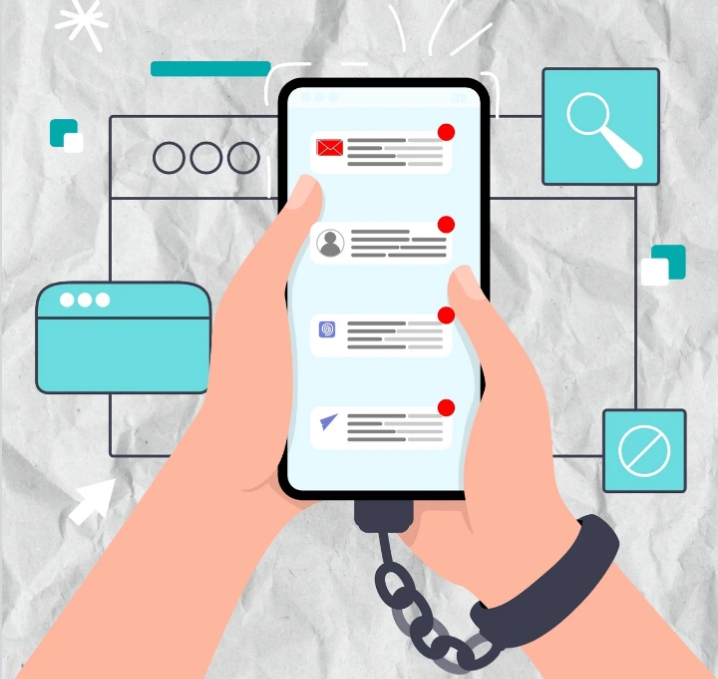The Illusion of Connection in a Digitally Lonely World
You open Instagram, scroll mindlessly, and suddenly an hour has vanished. You feel a pang of envy seeing someone’s “perfect” life. You check Twitter for the 10th time today, craving the next dopamine hit from likes and retweets.

This isn’t an accident—it’s by design.
Social media platforms are engineered to be as addictive as slot machines, using psychological tricks to keep you hooked. The more time you spend, the more money they make from ads. But at what cost to your mental health, attention span, and real-life relationships?
The core of social media addiction lies in how these platforms manipulate the brain’s reward system. Every like, comment, or notification triggers a release of dopamine—the same feel-good chemical activated by sugar, gambling, or drugs. This reward system is most effective when it’s unpredictable. Sometimes you get lots of likes, other times you don’t. That uncertainty creates compulsive behavior, leading you to check and refresh constantly, hoping for the next hit of validation. Combine that with features like infinite scroll, and you’ve got a system designed to eliminate stopping points so you never feel done.
What makes this even more damaging is the culture of comparison that dominates online spaces. People post only the best parts of their lives—the curated highlights, filtered photos, and staged successes. When you compare your real, messy life to their polished content, it’s easy to feel like you’re falling short. This kind of constant comparison has been linked to rising levels of anxiety, depression, and low self-esteem, especially among teens and young adults. Add FOMO—the fear of missing out—and you’re trapped in a cycle of checking just to make sure you’re not left behind.
Social media also thrives on outrage. Platforms push content that sparks emotional reactions because that keeps users engaged longer. Posts that make you angry or upset spread faster and further than those that simply inform. The result is a feed filled with controversy and chaos, reinforcing extreme opinions and making it harder to have balanced conversations. It also contributes to the rise of echo chambers, where people only see content that matches their views, pushing society further into division.
Meanwhile, the constant stimulation of short-form content is quietly eroding your ability to focus. Platforms like TikTok and Instagram Reels train your brain to crave quick dopamine hits and instant gratification. The more time you spend switching between apps, the harder it becomes to concentrate on deep work, reading, or thoughtful conversation. Studies have shown that the average attention span is shrinking, and multitasking between apps can temporarily reduce your IQ and make you less productive overall.
Despite all this, the solution doesn’t have to be extreme. You don’t need to quit social media entirely, but you do need to become more intentional about how you use it. Start by deleting or taking a break from the apps that consume most of your time. Even a 30-day detox can help reset your habits and perspective. Replacing that time with books, hobbies, or face-to-face conversations can restore balance.
You can also reduce your dependence by turning off notifications. Without constant alerts, your phone becomes less of a trigger. Switching your screen to grayscale makes it visually less appealing, which can help break the cycle of reflexive checking. Digital tools like Screen Time on iPhones or Digital Wellbeing on Android can help you set time limits for certain apps and track how much time you spend on them each day.
Another important step is curating your feed. If certain accounts make you feel jealous, anxious, or angry, unfollow them. Replace them with pages that educate, inspire, or bring joy. Your feed should serve you—not the other way around. And most importantly, invest more in real-life connections. Call a friend instead of messaging. Join a club, attend an event, or spend time with family. True connection happens offline.
Social media isn’t neutral—it’s a business model built on attention and emotion. You are the product. But knowing this gives you power. You can choose to break the cycle. You can choose mindfulness over mindless scrolling. You can choose to take back control.